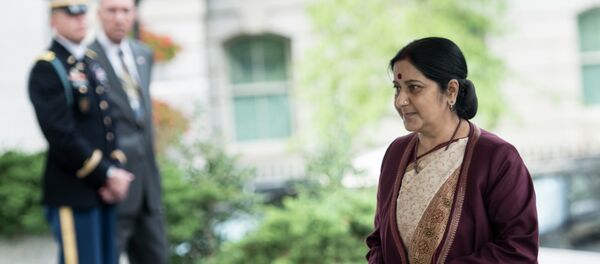Sputnik: How significant is this new deal between India and the United States?
Robinder Sachdev: What India’s defense minister has said is that “it has taken India-US relations to unprecedented heights,” I do think that’s the fact. It’s a major deal, a major step and a major milestone in US-India relations. For the last few years things were a bit stalling and there have been some hiccups between the US and India on a few topics, but I would say that this is a milestone. This is definitely a big step.
Robinder Sachdev: First of all, I agree that this is a new chapter in US-India relations. There’re two elements of what it means for our defense. First, about a week or ten days ago the US removed several export controls on the export of high technology and dual use technologies to India. India is now the only Asian country which is part of the Strategic Trade Authorization. That means that high technology items from the US can now be imported into India or purchased by India, which enhances India’s capabilities, especially in communications. I think it will bring quite a quantum jump in the technology component of India’s defense capabilities. It also means interoperability with the US in terms of communications, that’s one of the subparts of the deal, so that the US defense forces and Indian defense forces would have encrypted, safe and secure communications between the two forces. This also means that what India is purchasing from the US, the high tech items or communications equipment etc., would now come with even higher levels of sophistication to India. So this deal takes the whole thing to a new level.
Sputnik: It’s a significant win for the US in terms of India being one of the strongest emerging economies. What else can the US gain to win from this upcoming and blossoming relationship with India?
Robinder Sachdev: Definitely, on the business side of things the defense business is growing and huge for the US. Also remember LNG, because the US is now exporting LNG due to shale oil and the good capacities that they have; and India is a buyer now. The Gas Authority of India has one contract, a huge one, and there are more contracts expected to come up, so there’ll be more sales of LNG. What the US also gains from this relationship is, I think, a firmer “partnership” with India in the Pacific region especially. The US also gains by having India cooperating more with it on a bunch of strategic affairs. So the 2+2 dialogue, which was between the defense secretary and the secretary of state and their Indian counterparts, the big picture was to build trust or to enhance the level of trust between the two countries. It was already there to some level but there have been differences in opinions, which will further remain, but this has built up more trust between the two. What the US gets is, perhaps, a deeper strategic relationship with India.
Robinder Sachdev: Certainly, but on the whole there wasn’t one specific thing which triggered this agreement now. This agreement on the interoperability of communications has been in the works for over a decade. India had differences of opinions; we were reluctant to agree for several reasons, to which the US had been working on and creating some assurances. It’s been a process in work and a process of discussions for a while. And now I think that both sides have ironed their differences and doubts about trusting each other on this element of communications exchange. And definitely the US policy and stance towards Pakistan [has played a role in it]. And the US itself sees it; the rule of Pakistan, the Trump administration has been pretty blunt about it. So the US definitely saw a deeper engagement with India. The thing with India is that we need to acquire a lot of military systems. Where does India go? The US is a strong contender for this. In the absence of this agreement, several of the high technology deals with the US couldn’t have been made. The US wants to sell, so it’s compromising on that and India is in need, so it’s compromising on that. I think that both sides have come to this realistic assumption.
The views expressed in this article are those of the speaker, and do not necessarily reflect those of Sputnik.





